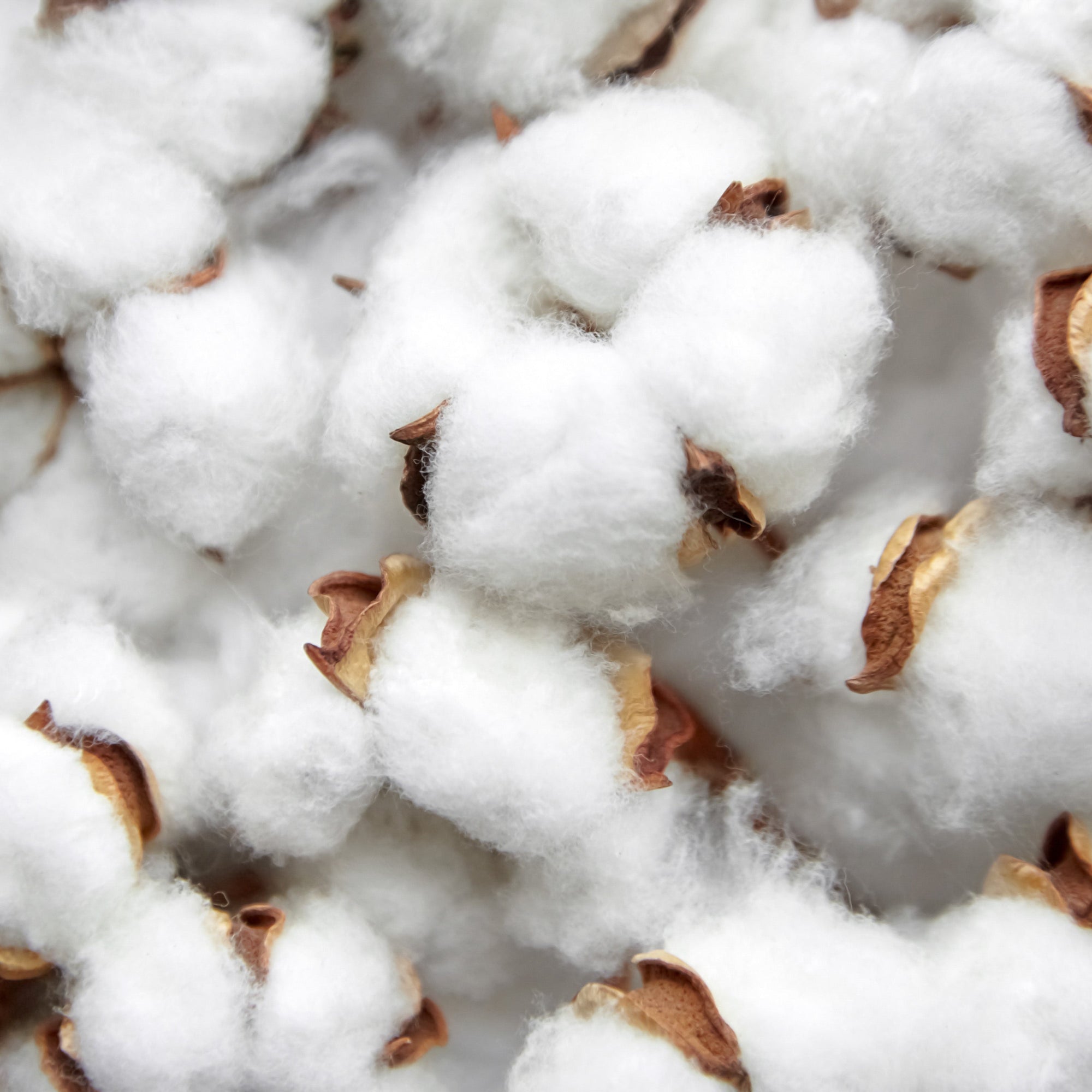Cotton

Cotton is a soft, breathable natural fibre from the seed hairs of the cotton plant. It is versatile, biodegradable and skin-friendly. Organic cotton is particularly sustainable – free from chemicals and grown under fair conditions.
What is cotton?
Cotton is a soft, natural plant fiber obtained from the seed hairs of the cotton plant. It is breathable, skin-friendly, and very versatile in use.
It is used for clothing, home textiles, medical bandages, padding, and many other textile products. As a renewable raw material, it is biodegradable and one of the most important natural fibers worldwide.
How is cotton produced?
The cotton plant is mainly cultivated in warm, dry regions. After harvesting, the fibers are separated from the seeds (ginning), cleaned, sorted, and spun into yarn. Further processing steps depend on the intended use – from weaving to dyeing.


Environmental footprint of cotton
Cotton is a renewable raw material that is cultivated worldwide. Particularly sustainable is organically grown cotton, which is cultivated without synthetic pesticides and chemical fertilizers.
1. Sustainability of raw material sourcing
Conventional cotton cultivation requires a lot of water and is often carried out using chemical agents. Organic farming relies on natural soil care, crop rotation, and gentle harvesting methods – protecting both the environment and the health of farmers.
2. Processing and energy consumption
The processing of cotton into yarn and fabric is mostly mechanical. In organic textile production, additional high ecological standards are maintained, such as in dyeing and finishing.
Transport and global supply chains can have a negative impact on the carbon footprint. Regional or certified suppliers help to improve it.

3. Durability
Cotton is known for its high tear strength and durability. Depending on the weave and finish, it is very long-lasting and retains its shape with proper care.
4. Reusability
Cotton textiles are easy to recycle – for example, into new yarns or as insulation material. Pure cotton fabrics can also be composted or used for energy recovery.
5. Biodegradability
Untreated cotton is biodegradable and decomposes completely under natural conditions – without residues or harmful substances.
Technical properties of cotton
| Property | Value |
|---|---|
| Type of material | Plant fiber |
| Density | approx. 1.54 g/cm³ |
| Compressive strength | Low |
| Flexural strength | Low to medium |
| Hardness | Soft |
| Elasticity | Limited – prone to wrinkling |
| Resistance | Resistant to heat, less so to moisture and mold |
| Weather resistance | Limited (primarily suitable for indoor use) |
| Color | White to cream (raw) |
| Workability | Very good – easy to spin and dye |
| Uses | Clothing, bedding, upholstery fabrics, hygiene products |
Cotton at ekomia
Cotton is an essential component of our sustainable textiles. Its skin-friendly and breathable properties make it ideal for use in bed linen, mattress covers, and upholstery materials.
We exclusively use certified organically grown cotton, which is produced without harmful chemicals and under fair working conditions.
In this way, we create durable, vegan products that protect both the environment and people – in line with our ecological design philosophy.

Questions & answers for Cotton
Here we answer some questions about Cotton that are frequently asked by other users.
Do you still have any questions?
Do you have any questions or comments on this topic? Write a comment, we will be happy to answer.

